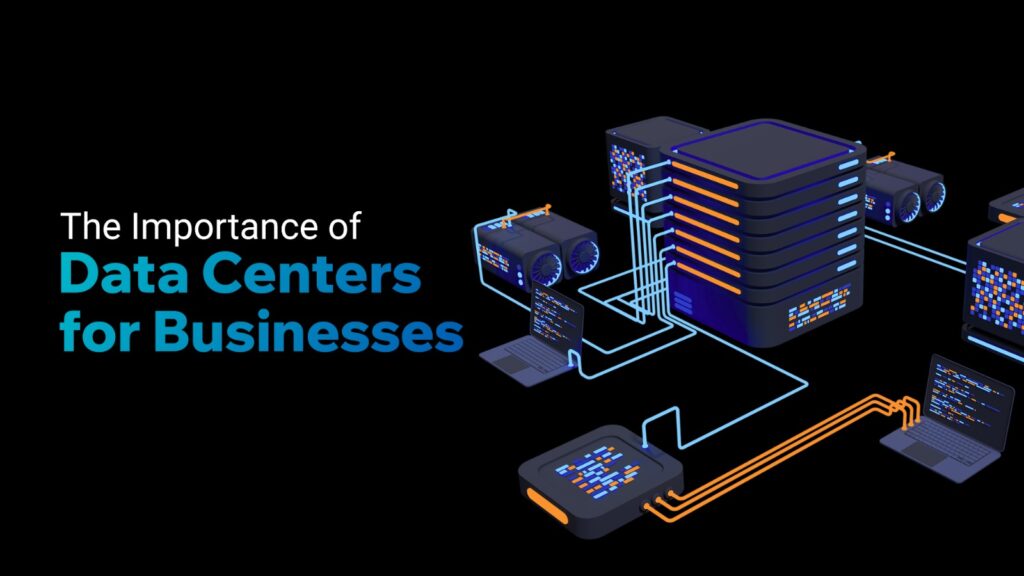
Whether you’re a small startup or a large enterprise, the way you manage, store, and access data can significantly impact your business’s efficiency, security, and scalability. This blog post will explore the critical role data centers play in business and why investing in the right data center solution is crucial for success.
What is a Data Center?
A data center is a facility that houses an organization’s critical IT infrastructure, including servers, storage systems, networking equipment, and other computing resources. These centers are designed to ensure that data is accessible, secure, and efficiently managed, providing businesses with the necessary tools to operate in a digital landscape.
Why Data Centers Matter for Businesses
Reliability and Uptime
One of the most important aspects of a data center is its ability to provide reliable uptime. Downtime can be disastrous for businesses, leading to lost revenue, damaged reputation, and customer dissatisfaction. Data centers are equipped with redundant power supplies, cooling systems, and network connections, ensuring that your business operations run smoothly without interruptions.
Scalability
As your business grows, so does the need for more data storage and processing power. Data centers offer scalable solutions that allow you to expand your IT infrastructure without significant capital investments. Whether you need more storage, increased processing power, or enhanced networking capabilities, a data center can provide the necessary resources on-demand.
Security
With cyber threats becoming more sophisticated, data security is a top priority for businesses. Data centers are equipped with advanced security measures, including firewalls, encryption, intrusion detection systems, and physical security controls, to protect your critical data from unauthorized access and breaches. By hosting your IT infrastructure in a data center, you can significantly reduce the risk of cyberattacks.
Whether you’re a small startup or a large enterprise, the way you manage, store, and access data can significantly impact your business’s efficiency, security, and scalability. This blog post will explore the critical role data centers play in business and why investing in the right data center solution is crucial for success.
What is a Data Center?
A data center is a facility that houses an organization’s critical IT infrastructure, including servers, storage systems, networking equipment, and other computing resources. These centers are designed to ensure that data is accessible, secure, and efficiently managed, providing businesses with the necessary tools to operate in a digital landscape.
Why Data Centers Matter for Businesses
Reliability and Uptime
One of the most important aspects of a data center is its ability to provide reliable uptime. Downtime can be disastrous for businesses, leading to lost revenue, damaged reputation, and customer dissatisfaction. Data centers are equipped with redundant power supplies, cooling systems, and network connections, ensuring that your business operations run smoothly without interruptions.
Scalability
As your business grows, so does the need for more data storage and processing power. Data centers offer scalable solutions that allow you to expand your IT infrastructure without significant capital investments. Whether you need more storage, increased processing power, or enhanced networking capabilities, a data center can provide the necessary resources on-demand.
Security
With cyber threats becoming more sophisticated, data security is a top priority for businesses. Data centers are equipped with advanced security measures, including firewalls, encryption, intrusion detection systems, and physical security controls, to protect your critical data from unauthorized access and breaches. By hosting your IT infrastructure in a data center, you can significantly reduce the risk of cyberattacks.
Cost Efficiency
Building and maintaining an in-house data center can be costly and resource-intensive. By leveraging third-party data centers, businesses can reduce operational costs associated with power, cooling, hardware maintenance, and staffing. This allows businesses to focus on their core competencies while leaving the IT infrastructure management to experts.
Disaster Recovery and Business Continuity
Data centers play a crucial role in disaster recovery and business continuity planning. In the event of a natural disaster, power outage, or other unexpected events, a data center ensures that your data is backed up and can be quickly restored, minimizing downtime and ensuring your business can continue operating without significant disruptions.
Connectivity and Speed
Modern data centers are equipped with high-speed internet connections and advanced networking technologies that ensure fast and reliable access to your data. This is particularly important for businesses that rely on cloud services, remote work, and real-time data processing.
Choosing the Right Data Center for Your Business
When selecting a data center for your business, it’s important to consider factors such as location, scalability, security, and connectivity. Here are some key points to keep in mind:
Location: Choose a data center that is geographically close to your primary business operations to reduce latency and improve access speeds.
Security: Ensure that the data center has robust security measures in place to protect your sensitive data.
Scalability: Select a data center that can grow with your business and offer flexible solutions that meet your changing needs.
Compliance: Make sure the data center complies with industry standards and regulations relevant to your business, such as GDPR, HIPAA, or PCI DSS.
Support: Consider the level of support offered by the data center provider, including 24/7 monitoring, technical support, and managed services.
https://www.dcconnectglobal.com/data-center-interconnection/
